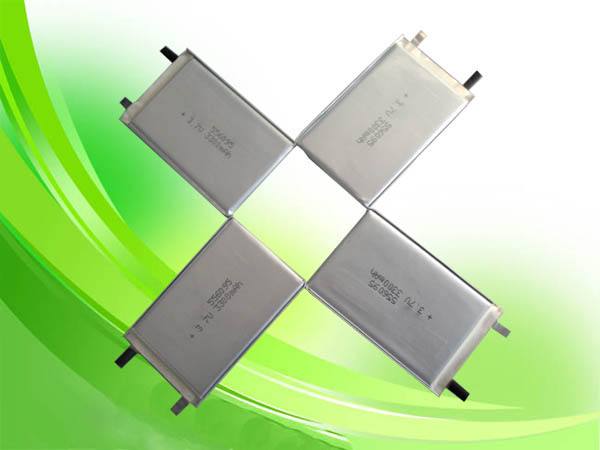How long do Lithium Polymer Batteries Last?
Sep 25, 2019 Pageview:2004
From the dawn of the 1800s, batteries have been considered a legendary discovery in the invention of electricity. Decades ago, before the creation of rechargeable cells or generators, individuals would agonize over the short lifespan provided by primary non-rechargeable cells to power certain machines hence forcing them to constantly replace the cells regularly, and thus incurring huge costs, especially with large scale machinery.
All hope, however, was not lost as the creation of lithium cells was warmly received worldwide in the 1860s. This led to the expansion of improved versions of the rechargeable cells, and not long ago before the popular lithium polymer batteries emerged. Abbreviated as LiPo, these cells are an evolution of the battery life born from lithium-ion and lithium-metal batteries. They are an upgrade of their predecessors, lithium-ion batteries, as they are smaller, lighter, and have a higher power capacity.
Lithium polymer batteries, LiPos, use a special solid polymer electrolyte (SPE) instead of the normal liquid lithium-salt electrolyte. The LiPos works on the basic principle of a microporous separator that allows only the electrode ions to migrate from either side of the electrodes and, depending on its chemistry, varies in voltage charge from a range of 2.7 – 3.0 V (when discharged) to around 4.0 V (when fully charged)
What is the lifespan of a LiPo battery·
You need not be a rocket scientist to figure out that as you keep using your battery, charging and discharging it regularly, its capacity will drop slowly over time. This process and the time is taken for the cell to wear out, fully depends on how you care for your LiPo battery and its capacity level.
Many times, manufacturers of different LiPo brands may claim that their batteries tend to last about 2 to 3 years max. As much as this claim may be somewhat true, considering a scenario where a normal LiPo battery is charged and used close to 2 or 3 times a week, it does not take into account the level of its usage, and thus its replacement might not go hand in hand with the date stamp posted.
A normal LiPo cell may last about 300 to 500 charge cycles depending on how you used and cared for it. So, for example, if your battery is 1500 mAh unboxed, it might be expected to fall to around 75% of that capacity (around 1200mAh) after 200 charge and discharge cycles.
One should note that a battery is said to start aging once unboxed and activated without considering whether or not it’s used or stored for a longer period. A LiPo battery is said to have fully served its intended use and lifespan when the capacity drops past 75% of its original storage capability.
What causes your LiPo battery to age·
Batteries deteriorating over time is a fact and reality that all users need to accept no matter what brand or quality you bought your LiPo cell at. One should be able to understand the actual principle behind battery life and what causes it to age as it isn’t that complicated a theory to grasp.
The concept of ion exchange between the cell’s cathodes, as explained in the third paragraph of this article, is not all that perfect. As you use your battery, during ion exchange in the cell, some lithium ions get permanently lodged onto the anode creating an extra layer called solid electrolyte interface which grows. A similar occurrence takes place on the anode, and the layer is referred to as electrolyte oxidation.
With more charge cycles over time, these layers keep growing, and thus effective communication between the electrodes and electrolyte solution is diminished. The availability of sites on the electrodes where ions can attach themselves reduces, and this leads to the decomposition of the electrolyte in the end. Gasses may be produced such as oxygen, carbon monoxide, and carbon dioxide, which explains the regular swelling of the battery during old age.
You should avoid letting your LiPo battery to reach this state as it can be dangerous to continue using it even after such signs pop up.
How do you prolong lithium polymer batteries' lifespan·
Even though reality dictates that every battery including LiPo cells will age and deteriorate over time until a point they can no longer be of use, there are a few tips or guidelines you can follow to get the most out of your battery and in turn delay the expiry period.
· Purchase a good quality charger designed specifically for LiPo batteries
This cannot be stressed enough. Before you even think about the dos and don’ts on charging your battery, ensure that the charger itself is of good quality and is designed to accommodate LiPo batteries specifically. Universal chargers may not be the better option, and thus one is advised on abstaining from their use.
· Do not overcharge or over-discharge
Avoid discharging more than 80% of your LiPo battery through overusing it and also, refrain from overcharging it to 100% or leaving it on charge even after it has reached that percentage. This may lead to ‘trickle charging’ and in the long run, faster deterioration of the battery.
· Keep your LiPo battery at room temperature
This implies that your battery should be between 20 – 25 degrees C. Exposing it to high temperatures, especially when fully charged is dangerous just as exposing it to freezing temperatures is.
How to charge your LiPo battery·
Every charger used on LiPo batteries is different, and thus one should be careful as to read the manual provided for both the charger and battery before plugging in. It is recommended that you provide a steady current and voltage that the battery is willing to accommodate to avoid short circuits.
Lithium polymer battery life and death
LiPo battery cells are quite costly and thus need to be treated with care for one to get the most out of them, and that requires the user to put in all measures discussed in this article. Like everything on this earth, such batteries age and thus leaving them ‘unused’ in the name of ‘it will last longer’ doesn’t apply because once you tear off the pack and activate it, the countdown begins.
If your LiPo battery starts showing signs of wear or deterioration, avoid using it as these are signs of its final kicks before it dies. A replacement is, therefore, in order because after all, nothing lasts forever.
Final thoughts
Lithium polymer batteries have been quite the successive experiment, and this proves that better versions are yet to be introduced. However, to be able to care for these unique inventions, you need to follow the advice that this article provides and you’re good to go.
- Prev Article: 18650 Battery Charger Capacity Tester
- Next Article: What To Do With Old Lithium Batteries
Leave Message
Hottest Categories
-
Hottest Industry News
-
Latest Industry News











